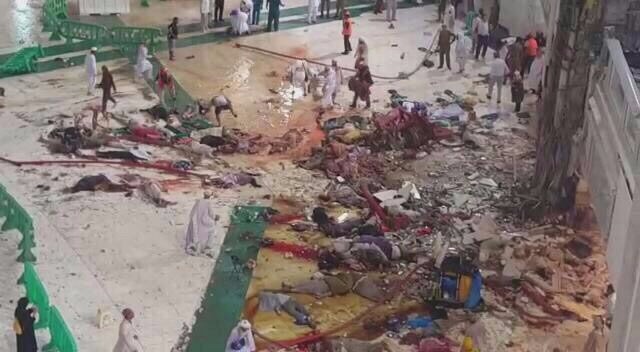Saudi Arabia has started court trials for 14 people suspected of malpractice that led to a deadly crane crash in the holy city of Mecca last year.
Saudi Arabia has started court trials for 14 people suspected of malpractice that led to a deadly crane crash in the holy city of Mecca last year.
The massive construction crane collapsed into Mecca’s Grand Mosque last September, killing more than 100 pilgrims and injuring over 200 others during Hajj rituals.
Those standing in the dock at the trial are accused of “negligence leading to death, damaging public property, and ignoring safety guidelines,” Saudi media reported.
The defendants include at least one Saudi “billionaire,” nationals from several other Arab countries, and other individuals from Pakistan, the Philippines, and Canada.
The billionaire is likely to belong to the Saudi Binladin Group construction behemoth, which had installed the crane.
The suspects denied the charges against them, insisting that the crane collapse was caused by rough weather. The court ordered a new session for next month.
According to the figures released by Iran’s Hajj and Pilgrimage Organization, 11 Iranian pilgrims were among those killed in the crane collapse. Another 32 Iranians were injured in the incident.
However, the crane crash was just a case in a litany of catastrophic Hajj disasters which have claimed the lives of many hundreds in Saudi Arabia in recent years.
Days after the crash, at least 465 more Iranian pilgrims lost their lives during a deadly crush, which occurred after two large masses of pilgrims converged at a crossroads in Mina near Mecca during the Hajj rituals.
Saudi Arabia put the initial death toll at 770 but refused to update it, which further fueled accusations of catastrophic mismanagement of the Hajj rituals by the regime.
The Associated Press and several other news agencies counted more than 2,200 fatalities. Iran says a total of about 4,700 people lost their lives in the incident.
The kingdom's handling of the disaster aggravated already strained relations with Iran. For weeks, Saudi authorities refused to provide information about the fate of many missing pilgrims and rejected Iran's offer to help with the identification of the victims.
